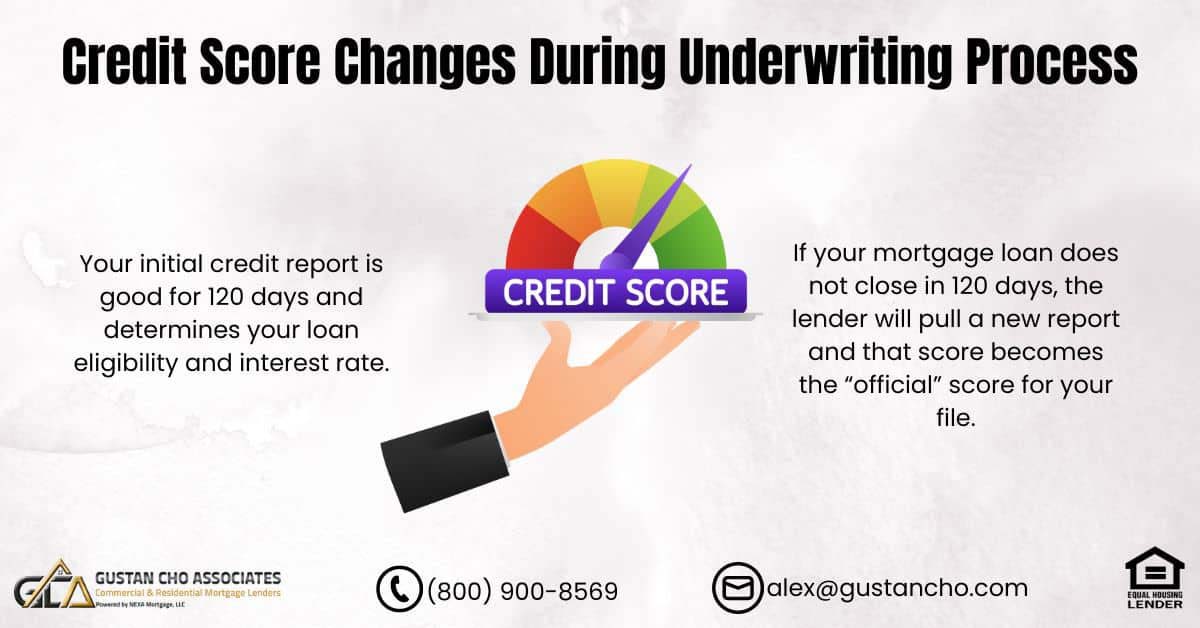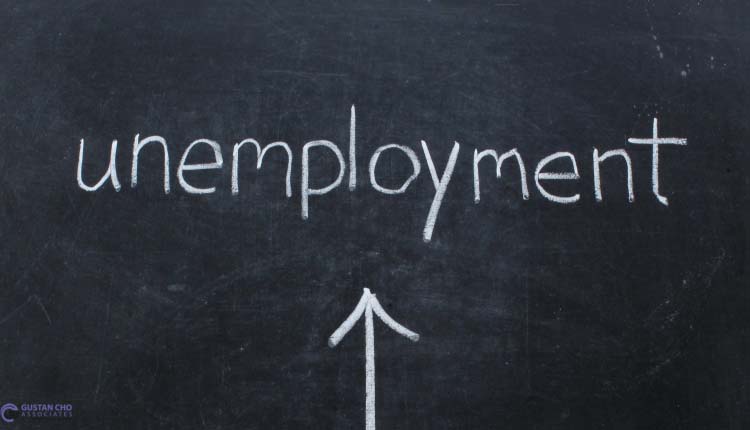This guide covers credit score changes during underwriting process.
Credit Score Changes During Underwriting Process: What You Need to Know in 2025
Going through the mortgage process can be overwhelming, especially with concerns about credit score changes during underwriting process. Will the lender cancel your loan approval? Will your interest rate go up? Or does it not matter at all?
Lenders routinely check your credit score when you apply for a home loan. In most cases, they also check it again before closing. Here’s the good news: a small change in your credit score during underwriting won’t always negatively affect your mortgage.
Improving your credit score could even lower your interest rate in some situations. And risks are involved, especially if your credit score drops significantly due to derogatory information. In this updated guide on credit score changes during the underwriting process for 2025, we’ll explain everything you need to know about credit score changes during underwriting process, how to protect your score, and what to do if changes occur.
Why Do Credit Scores Matter During Underwriting?
Your credit score is one of the key things lenders look at when determining you as a suitable candidate for a mortgage. This means that when your credit score changes during the underwriting process, it can impact your mortgage approval and even the terms of your loan. It affects:
- Your interest rate: Individuals with stronger credit ratings often benefit from more favorable borrowing rates.
- Loan program eligibility: Some loans, like conventional loans, have minimum credit score requirements.
- Debt-to-income (DTI) ratio flexibility: Higher credit scores often allow for higher DTI limits, giving you more borrowing power.
During underwriting, lenders evaluate your financial profile to ensure you’re a low-risk borrower. Your credit score changes during underwriting process are carefully monitored because they could indicate new debt or financial instability.
Take First Step Toward Making Your Dream A Reality
Apply Online And Get recommendations From Loan Experts
When Do Lenders Check Your Credit?
Lenders typically check your credit score at least twice:
- Initial application: To pre-approve you for a loan and determine your eligibility and interest rate.
- Before closing: Before you close on your loan, it’s important to double-check that nothing major has changed with your money situation. This means looking out for any credit score changes during underwriting process, which could affect your approval. Communicate any updates to your lender so everything stays on track.
In 2025, many lenders will be using advanced tools like AI and real-time credit monitoring to flag any changes in your credit report throughout the process. Even small changes could be noticed, so it’s more important than ever to stay financially stable during underwriting.
How Long Is Your Initial Credit Report Valid?
Your initial credit report is typically valid for 120 days. The lender will pull a new report if your loan doesn’t close within that timeframe. Any credit score changes during underwriting process within this period can impact your loan terms, so avoiding actions that could lower your score is crucial.
What Happens If Your Credit Score Increases During Underwriting?
An increase in your credit score can be a good thing. Some lenders allow borrowers to adjust their interest rate based on a higher credit score, but only if you haven’t already locked in your rate. For example:
- You might qualify for a better rate tier if your score improves from 679 to 680.
- When your credit score changes during underwriting process, it can have a big impact on your loan. If your score goes up a lot, you could save thousands of dollars over the life of the loan. That means paying less interest and making it easier to manage your monthly payments. Keeping an eye on those credit score changes can pay off in the end!
Pro Tip: Ask your lender if they’ll honor a higher credit score for better loan pricing. At Gustan Cho Associates, we allow borrowers to lock in better rates if their credit score changes during underwriting process and improve.
What Happens If Your Credit Score Drops During Underwriting?
If your credit score drops during underwriting, the impact depends on the severity of the drop and its cause. Here are the possibilities:
- Small drops: Minor fluctuations (e.g., a 5-point decrease) typically don’t affect your approval or interest rate.
- Significant drops: A large drop could:
- Require the lender to reevaluate your loan application.
- Push you below the minimum credit score requirement for your loan program.
- Increase your interest rate if the drop moves you into a lower credit tier.
Key Takeaway: If your credit score changes during underwriting process and goes down a lot, it could slow down your closing or even cause your loan to be denied. If that happens, you might have to look into other loan options or take some time to boost your credit score.
How to Protect Your Credit During the Mortgage Process
To avoid surprises, follow these steps to keep your credit stable:
- Don’t apply for new credit. When you’re going through the underwriting process for a loan, it’s important to keep your credit score in mind. Try not to apply for any new credit during this time. This means you should avoid getting new credit cards, buying furniture on financing, or taking out loans for a car. These actions can cause credit score changes during underwriting process and might hurt your chances of getting approved for the loan you want.
- Keep credit card balances low. To maintain a healthy utilization rate, aim for less than 30% of your credit limit.
- Pay all bills on time. It’s really important to pay all your bills on time. Your payment history is a big part of your credit score — it accounts for 35%! If you miss just one payment, your score could drop by 60 to 100 points. This is especially crucial, as credit score changes during underwriting process can greatly affect loan decisions. Remember, staying on top of your payments helps keep your credit score strong!
- Avoid disputing old collection accounts. Any activity on an old account can bring it back into focus, potentially hurting your score.
- Monitor your credit. Use free tools like Credit Karma or paid services like Experian or Equifax to monitor changes.
What Causes Credit Score Drops During Underwriting Process?
Several factors can cause a credit score to drop:
- New credit inquiries: Applying for credit results in hard inquiries, which can lower your score by 2-5 points per inquiry.
- Increased credit card balances: High utilization rates can significantly impact your score.
- Late payments: A single late payment can cause a sharp drop in your score.
- New derogatory accounts: Collections, charge-offs, or judgments can be devastating.
- Errors on your credit report: When looking at your credit report, look for any mistakes. Mistakes can happen, and they can affect your credit score. Check for errors because inaccuracies can lead to credit score changes during underwriting process. Being aware of your report can help you avoid potential problems down the line.
How Credit Scores Impact Debt-to-Income Ratio (DTI)
Credit scores can influence your DTI ratio limits, especially for FHA loans. Here’s how:
- Borrowers scores under 620 often face stricter DTI caps, such as 31% (front-end) and 43% (back-end).
- Borrowers with scores above 620 may qualify for higher DTI limits, up to 46.9% front-end and 56.9% back-end for FHA loans.
Higher credit scores give you more flexibility and improve your chances of approval, even with a higher DTI.
2025 Trends: How Technology Impacts Credit Monitoring
In 2025, lenders increasingly use advanced technology to monitor credit profiles in real time. Here’s what this means for you:
- AI-driven monitoring: Automated tools can flag potential risks during underwriting, such as new accounts or rising balances.
- Trended credit data: New scoring models like FICO 10T analyze your credit behavior over time, not just at a single point. Consistent payments and declining balances can improve your score.
- Faster updates: Errors on your credit report can now be corrected more quickly through digital dispute systems.
Pro Tip: Work with a lender like Gustan Cho Associates, which stays up-to-date with the latest technology to provide seamless mortgage experiences.
What to Do If Your Credit Score Drops
If your credit score drops during underwriting, here’s what you can do:
- Communicate with your lender. Be upfront about the issue and ask for guidance.
- Explore alternative loan options. Consider FHA or non-QM loans if you no longer meet conventional loan requirements.
- Work on improving your score. Pay down credit card balances and resolve any errors on your credit report.
- Delay closing if necessary. A short delay can give you time to address credit issues and qualify for better terms.
Final Thoughts: Stay Prepared and Informed
When you’re going through the mortgage process, it’s important to know that credit score changes during underwriting process can affect whether you’re approved and what your loan terms will be. If you understand how these changes can happen and take steps to protect your credit, you’ll feel more confident navigating this stage.
At Gustan Cho Associates, we help people with all kinds of credit situations. Whether your credit score changes during underwriting process or stays the same, our team is here to help you find the right loan options. If you have any questions or need some advice, feel free to contact us today at 800-900-8569 or email us at alex@gustancho.com. We’re here for you!
Frequently Asked Questions About Credit Score Changes During Underwriting Process:
Q: What Does it Mean if my Credit Score Changes During Underwriting Process?
A: Your credit score can fluctuate during underwriting based on changes in your financial activity, like new debt or missed payments. Lenders monitor these changes to ensure you still qualify for your mortgage.
Q: Will my Loan be Denied if my Credit Score Drops During Underwriting?
A: Not necessarily. Small drops usually don’t impact approval, but a significant drop could delay your closing or lead to denial. It depends on the severity of the drop and your loan program’s minimum credit score requirements.
Q: Can an Increase in my Credit Score Help During Underwriting?
A: Yes! If your credit score increases and you haven’t locked in your interest rate, you might qualify for a lower rate. This could save you money over the life of your loan.
Q: Why do Lenders Care About Credit Score Changes During Underwriting Process?
A: Your credit score reflects your financial stability. Lenders use it to decide your loan eligibility, interest rate, and debt-to-income ratio limits. Big changes could signal financial risks.
Q: How Can I Prevent my Credit Score from Dropping During Underwriting?
A: Avoid applying for new credit, don’t max out credit cards, pay all bills on time, and monitor your credit for errors. These steps can help maintain a stable credit score.
Q: Do Lenders Pull my Credit More Than Once During the Mortgage Process?
A: Yes, lenders typically check your credit at the time of application and again before closing to ensure your financial situation hasn’t changed.
Q: What Should I do if my Credit Score Drops During Underwriting?
A: If your credit score changes during underwriting process, it’s important to talk to your lender as soon as you can. They might offer you different loan options. Also, you can try to boost your score by paying off some debts and fixing any mistakes on your credit report.
Q: Can Errors on my Credit Report Affect my Mortgage Approval?
A: Absolutely. Errors found on your credit report can lead to unwarranted credit score changes during underwriting process. It’s advisable to review your report frequently and promptly address any inaccuracies.
Q: What Happens if my Loan Doesn’t Close Within 120 Days?
A: If your loan doesn’t close within 120 days, your lender will pull a new credit report. Any changes in your credit score at that time will impact your loan terms or approval.
Q: Can I Still Qualify for a Mortgage if my Credit Score Changes During Underwriting Process?
A: Yes, but it depends on the extent of the change. Minor fluctuations are usually fine, but significant changes may require adjustments to your loan terms or even a different loan program. Always discuss any concerns with your lender.
This blog about “Credit Score Changes During Underwriting Process” was updated on January 24th, 2025.










